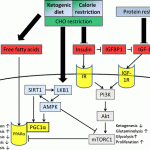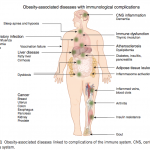

Pin ItCalorie restriction (CR) and a ketogenic diet (KD) target the same molecular pathways that are also targeted individually by drugs to improve cancer treatment outcomes. Arrows indicate activation, truncated lines inhibition. Carbohydrate (CHO) restriction up-regulates fatty acid oxidation and ketogenesis (beneficial for normal tissues) and impairs glycolysis and glutaminolysis (detrimental to tumor cells). Full study here.Health Impact News Editor Comments:One of the truly exciting new frontiers in nutrition therapy is the study of the high-fat low-carb ketogenic diet, especially in relation to preventing and curing cancer. The ketogenic diet as a therapeutic diet is not new.
Visit source:
Study: Intermittent Fasting and Ketogenic Diet Effective in Cancer …


 For now classes are 6pm and 640pm at 2840 Wildwood st in the Boise Cloggers studio.
Book your class NOW!
click this ==>
For now classes are 6pm and 640pm at 2840 Wildwood st in the Boise Cloggers studio.
Book your class NOW!
click this ==>








